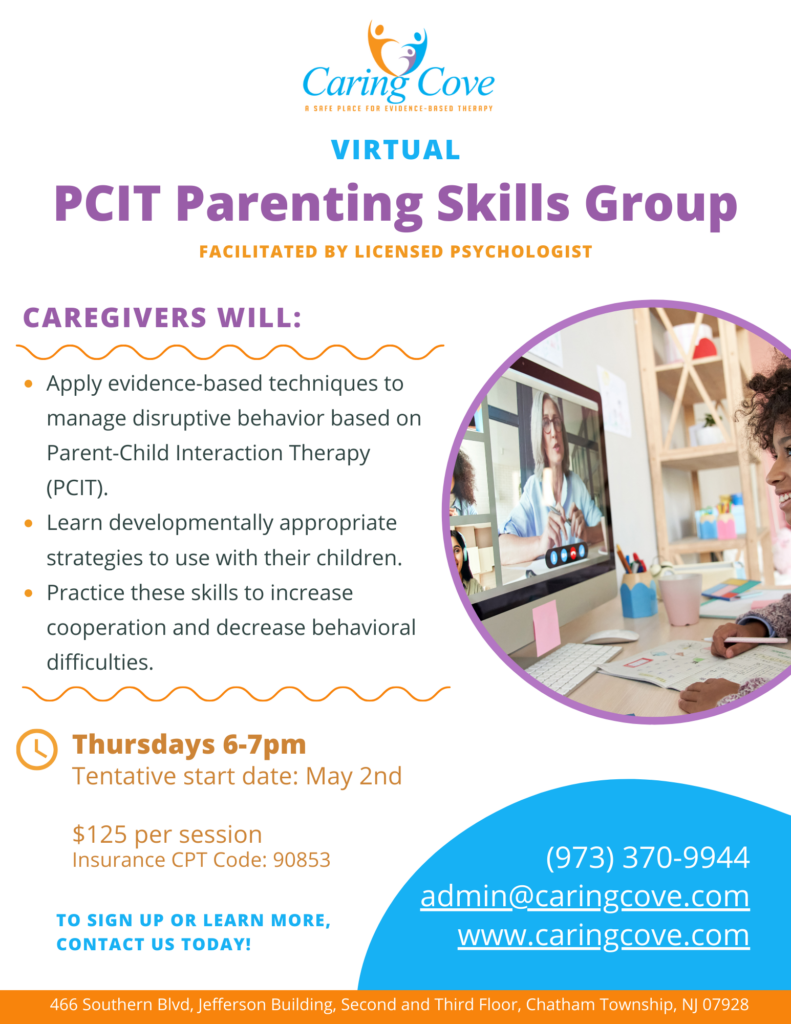Registration Now Open!

Have You Noticed Behavioral Problems In Your Child?
 Is your child arguing with siblings or refusing to follow directions? Are they getting in trouble at school or having difficulties at pick-up or drop-off? Perhaps they are becoming aggressive and you don’t know how to manage their behavior. You want to help your child thrive at home and at school, but with each unsuccessful attempt to address the problems, your worries grow. Now, you find yourself at the end of your rope, unsure of what to do when discipline isn’t working.
Is your child arguing with siblings or refusing to follow directions? Are they getting in trouble at school or having difficulties at pick-up or drop-off? Perhaps they are becoming aggressive and you don’t know how to manage their behavior. You want to help your child thrive at home and at school, but with each unsuccessful attempt to address the problems, your worries grow. Now, you find yourself at the end of your rope, unsure of what to do when discipline isn’t working.
You know that all children misbehave at times, and many parents struggle to address behavioral problems. But a part of you wonders if your child is an extreme case. What if there’s more going on? Is there something more you could be doing? You give your child tons of attention and you’ve tried everything you can think of to improve their behavior, but they just refuse to listen and get along with others.
If your child could just behave themselves and follow instructions, your family and home environment would be so much calmer and at peace. Do you wish someone could help you understand why your child is struggling and what you could do to address behavioral problems?
Many Parents Struggle With Managing Problematic Behavior
You may feel that you’re doing something wrong as a parent for not being able to provide the help your child needs. But the fact that you have this ongoing struggle does not make you a bad parent, nor does it mean that something is fundamentally wrong with your child. For some children, being “difficult” is just part of their developmental stage. For others, it could be Oppositional Defiant Disorder or Attention Deficit/Hyperactivity Disorder (ADHD), in which case, they may require extra support and/or treatment.
 Parenting rarely happens in a vacuum, and we all can use help every now and then. If you have concerns about your child’s behavior, it is important to seek help as quickly as possible. While behavioral problems in children could be a natural part of their development, it’s important to know that children do not outgrow behavioral difficulties on their own. And untreated behavioral problems have been linked to future academic, social, and interpersonal difficulties.
Parenting rarely happens in a vacuum, and we all can use help every now and then. If you have concerns about your child’s behavior, it is important to seek help as quickly as possible. While behavioral problems in children could be a natural part of their development, it’s important to know that children do not outgrow behavioral difficulties on their own. And untreated behavioral problems have been linked to future academic, social, and interpersonal difficulties.
Having a child who doesn’t listen or follow simple instructions can be frustrating, but this behavior doesn’t have to be permanent. There are empirically-supported treatment techniques that have been shown to address the exact behavior that you are experiencing. And with the help of a qualified child psychologist who is experienced in treating behavioral problems, you can recognize the underlying needs behind your child’s actions and gain the communication and parenting skills you need to foster a healthier, happier family dynamic.
Caring Cove Can Help Your Child And Family Thrive
At Caring Cove, our goal is to help your child and family live your best lives. We greet you with warmth and empathy, so you and your child can share your needs without fear of being judged or criticized. We draw from evidence-based approaches for behavioral problems, and we tailor our treatment plan to your child and family’s unique needs and goals. The two most common approaches we utilize to address behavioral difficulties are Parent-Child Interaction Therapy (PCIT) and Parent Management Training (PMT).
Our first session will focus on getting to know your child and understanding their needs. For younger children, the intake process includes observations of your child. By assessing functional impairment and differentiating between normal child behaviors and clinically significant behaviors, we can select the best treatment approach.
At Caring Cove, we most commonly use PCIT for children 2 to 7 years old. For PCIT sessions, we have a specially designed treatment room that allows us to observe the parent-child relationship through a one-way mirror and provide live coaching to caregivers. The Director of the Caring Cove is one of few psychologists in New Jersey who is a Certified Therapist in PCIT.
 For children 7 years and older, we often use Parent Management Training. PMT has been repeatedly shown to significantly reduce problematic conduct in children. Regardless of how mild or severe the challenging behaviors have become, the step-by-step guidance provided in PMT can help you learn the parenting skills and strategies you need to address problematic or disruptive behavior both now and in the future.
For children 7 years and older, we often use Parent Management Training. PMT has been repeatedly shown to significantly reduce problematic conduct in children. Regardless of how mild or severe the challenging behaviors have become, the step-by-step guidance provided in PMT can help you learn the parenting skills and strategies you need to address problematic or disruptive behavior both now and in the future.
Both PMT and PCIT are evidence-based, short-term treatment models that focus on improving parent-child interactions and implementing effective strategies to address behavior problems. It is our goal to take the guess work out of helping your child. We want you to leave each session feeling confident and equipped with the skills necessary to help your child thrive at home, at school, and in the community.
The strategies used at Caring Cove have been helping children and families address behavioral problems for years. No matter how difficult things may seem right now, you can give your child, family, and yourself the help you need to heal and grow stronger together.
You May Have Some Concerns About Therapy for Behavior Problems…
Nothing has helped my child before, why will this improve my child’s behavior?
The types of treatments that we provide at Caring Cove have been extensively researched and shown to significantly reduce disruptive behaviors in children. Parent-Child Interaction Therapy specifically has more than 50 years of research supporting its effectiveness, and it has been identified as the gold-standard treatment for addressing behavioral difficulties in young children. In order to ensure that we are using the best treatment approach, we will also be monitoring your child’s progress every session so we can make modifications if necessary.
Do I have to be part of the sessions?
 Parent involvement is crucial when addressing behavioral problems. You are the expert on your child, and your insights will help guide our treatment approach. Additionally, our goal is to equip you with the skills necessary to address your child’s behavior and maintain progress without ongoing treatment. After the intake, we will discuss with you the amount and type of caregiver involvement necessary for the best possible treatment outcome.
Parent involvement is crucial when addressing behavioral problems. You are the expert on your child, and your insights will help guide our treatment approach. Additionally, our goal is to equip you with the skills necessary to address your child’s behavior and maintain progress without ongoing treatment. After the intake, we will discuss with you the amount and type of caregiver involvement necessary for the best possible treatment outcome.
How will I afford therapy?
The evidence-based approaches we draw from at Caring Cove have been shown to deliver practical results faster than traditional talk therapy alone. This allows families to receive the support they need at a lower overall cost since fewer sessions are required. It also makes it easier to estimate the cost of treatment from start to finish. While therapy represents an investment up front, the cost of ongoing behavioral disorders or problems is more significant than the cost of treatment.
A percentage of our fees are also reimbursable under most insurance plans using out-of-network benefits. We will provide you with a superbill to submit to your carrier for reimbursement. Visit our FAQ page for answers to common insurance questions. We can also discuss setting up a payment plan if necessary.
Evidence-Based Therapy Can Help Address Behavioral Problems in Your Child
If you are ready to meet with a clinical psychologist, we invite you to call Caring Cove at 973-370-9944 for a free 15-minute consultation to see if we are a good fit for working together. We look forward to hearing from you.
